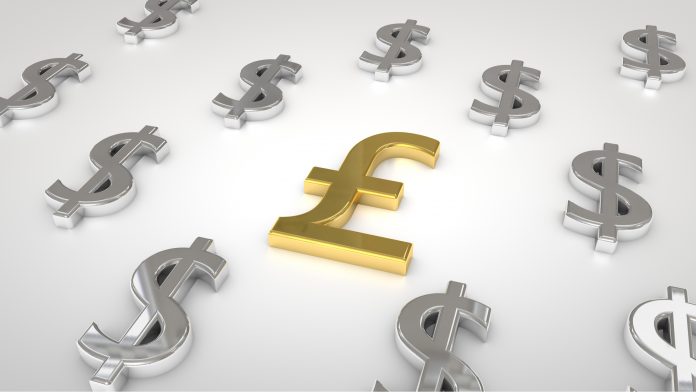Brexit nerves weighed on demand for the pound in the previous session, whilst the dollar was in demand thanks to its safe haven properties. As a result, the pound fell lower versus the US dollar on Wednesday, closing 0.2% in the red at US$1.2141. The pair is gaining ground in early trade on Thursday.
| What do these figures mean? |
| When measuring the value of a pair of currencies, one set equals 1 unit and the other shows the current equivalent. As the market moves, the amount will vary from minute to minute.
For example, it could be written: 1 GBP = 1.28934 USD Here, £1 is equivalent to approximately $1.29. This specifically measures the pound’s worth against the dollar. If the US dollar amount increases in this pairing, it’s positive for the pound. Or, if you were looking at it the other way around: 1 USD = 0.77786 GBP In this example, $1 is equivalent to approximately £0.78. This measures the US dollar’s worth versus the British pound. If the sterling number gets larger, it’s good news for the dollar. |
UK politics continue to be the driving force behind the pound. On Wednesday the UK domestic political situation took a turn for the worse as the threat of a second Scottish independence vote increased. The shadow Chancellor, Labour’s John McDonnell said on Wednesday that Labour would not stand in the way of a second Scottish independence referendum. The reason behind Labour’s change of policy is clear. A Scottish National Party — Labour Party coalition could keep the Conservatives out of power if Boris Johnson calls an early election. Currently polls indicate that Scotland would vote Leave in a new referendum.
Whilst an election could mean a hard Brexit is avoided, it could also mean that a second Scottish independence referendum is on its way. This knocked the pound.
| How does political risk impact on a currency? |
| Political risk drags on the confidence of consumers and businesses alike, which means both corporations and regular households are then less inclined to spend money. The drop in spending, in turn, slows the economy. Foreign investors prefer to invest their money in politically stable countries as well as those with strong economies. Signs that a country is politically or economically less stable will result in foreign investors pulling their money out of the country. This means selling out of the local currency, which then increases its supply and, in turn, devalues the money. |
Today sterling is seen gaining ground as investors continue to focus on Brexit developments. The pound has found some solace in news that US Secretary of State Mike Pompeo told his UK counterpart Dominic Raab that the US stands ready to sign a free trade agreement at the earliest possible time. This would at least soften the blow of the UK losing access to the single market.
Flight To Safety Keeps Dollar Buoyant
The dollar has been benefiting this week from a flight to safety stance in the financial markets amid the ongoing concerns over the US-Sino trade dispute. The dollar is the global reserve currency, this means that in times of increased geopolitical tensions investors tend to move into the dollar. With China hinting towards a currency war the dollar has been in favour.
President Trump reiterating accusations that the Federal Reserve is not cutting rates fast enough has dented demand for the dollar lower in early trade on Thursday. Trump’s tweet that the “Fed needs to cut bigger and faster” and that the problem was not China but the US central bank has unnerved dollar investors.
Today the US economic data docket is relatively light with just initial jobless claims to focus on.
This publication is provided for general information purposes only and is not intended to cover every aspect of the topics with which it deals. It is not intended to amount to advice on which you should rely. You must obtain professional or specialist advice before taking, or refraining from, any action on the basis of the content in this publication. The information in this publication does not constitute legal, tax or other professional advice from TransferWise Limited or its affiliates. Prior results do not guarantee a similar outcome. We make no representations, warranties or guarantees, whether express or implied, that the content in the publication is accurate, complete or up to date.
The content at CurrencyLive.com is the sole opinion of the authors and in no way reflect views of TransferWise Ltd.





